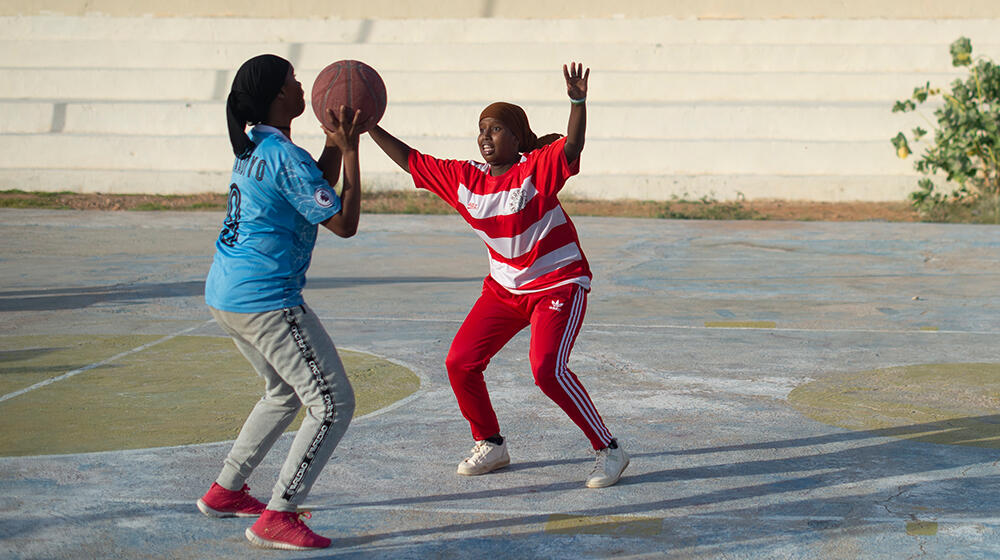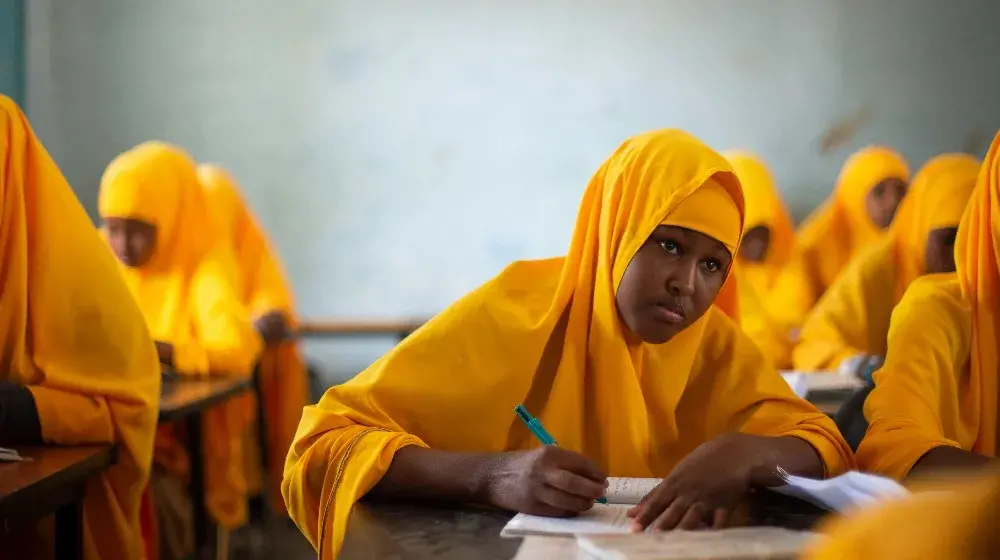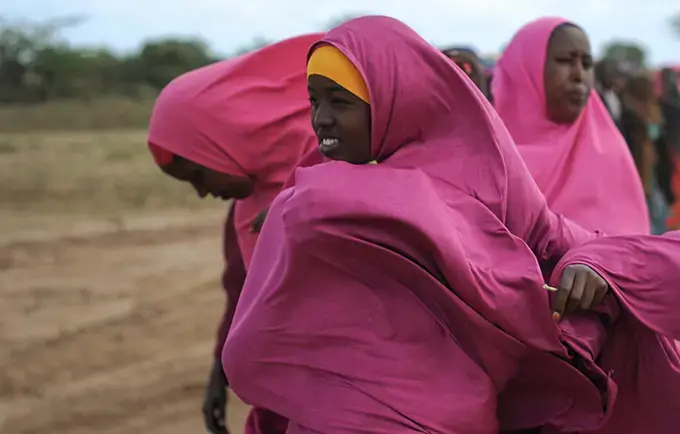Despite interventions and investments put in place to accelerate change towards reducing Female Genital Mutilation (FGM), the prevalence remains unchanged in Puntland. The Puntland Health and Demographic Survey (PLHDS), published in 2020, revealed that the prevalence of FGM among women and girls aged 15 to 49 years remains high at a staggering 99 percent. Similarly, pregnancy-related deaths remain the leading cause of mortality among women and girls aged 15 to 17 years.
Halima Yusuf (not her real name) is a 24 year old basketball trainer and single mother from Garowe. Being the sole provider for her family, she is responsible for the needs of many.
Halima is a survivor of FGM type three: the narrowing of the vaginal opening through creating a covering seal. As a result, she suffered early pregnancy complications and prolonged labors. When she was only 15 years old, she gave birth to her first child, and at the age of 17, after four years of marriage, she found herself a divorcee with three children to care for.
For the past 10 years, FGM stakeholders under the leadership of UNFPA have advocated for policies, bills and laws criminalizing the harmful practice. These efforts have finally led to the endorsement of anti-medicalization and FGM zero-tolerance policies by cabinet members.
On 10 June 2021, at the Puntland cabinet weekly meeting chaired by Puntland’s President His Excellency Said Abdullahi Deni, members unanimously endorsed a zero-tolerance FGM bill – banning all forms of the harmful practice. The Minister of Justice, Constitution, Religious Affairs and Rehabilitation, Mr. Awil Sheikh Hamud, presented the bill to the cabinet.
Those who are found guilty of endorsing the harmful practice will face repercussions
The zero-tolerance bill criminalizes all forms of FGM. It classifies those who continue to practice it, such as circumcisers, both traditional and health care professionals, parents, and helpers, as perpetrators. Those who are found guilty of endorsing the harmful practice will face repercussions. The bill includes the criminalization of those who promote FGM or attempt to influence people to circumcise their underage daughters; younger than 18 years of age.
The zero-tolerance bill was first initiated some 10 years ago and has received significant resistance from conservative religious leaders who placed great efforts in influencing parliamentarians and the public. The religious leaders denounce all forms of FGM except the milder form of FGM known as Sunna, and they would like the bill to legitimize the Sunna type of FGM.
Through partnerships with civil society organizations, including the Puntland Development and Research Center, Puntland Media Association and Puntland Youth Peer Network, UNFPA has supported results-based advocacy platforms and innovative awareness-raising campaigns by using tools such as mobile-audio visual cinema films and sparking community conversations to reach urban and rural communities in Puntland.
Nowadays, Halima combines her basketball lessons with awareness-raising sessions about FGM. She has pledged to be a champion who fights all harmful traditional practices inflicted on young girls.
---Kamal Abdukadir




